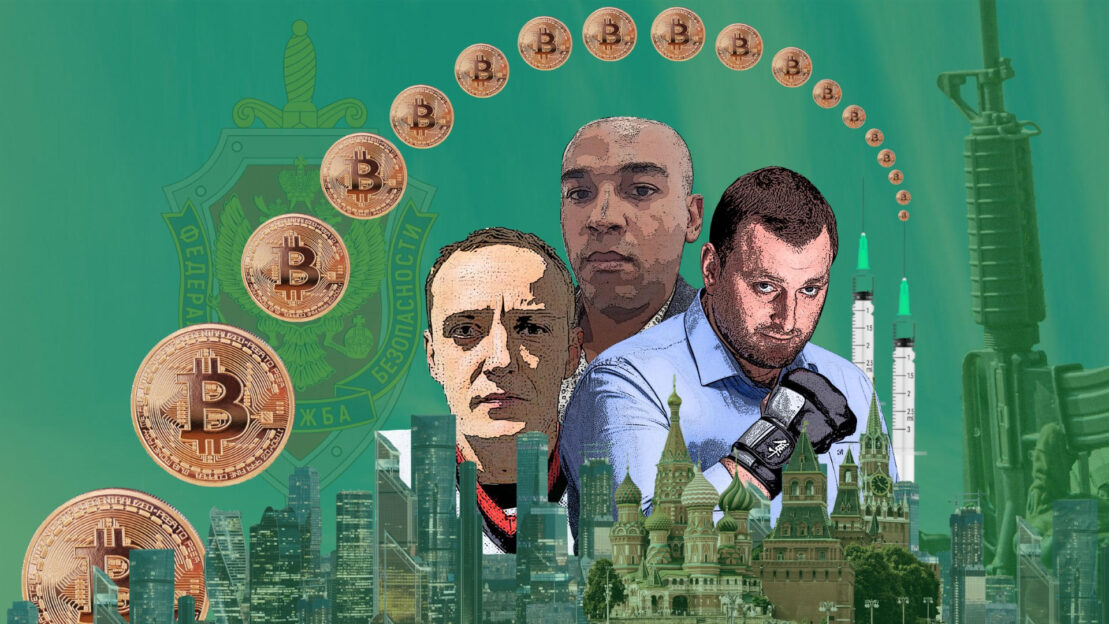A company closely associated with the sanctioned virtual currency exchange Garantex is reported to co-own a debt-collection enterprise with a convicted gang leader and has connections to Rosneft, the Kremlin-linked oil company, according to a recent investigation.
The inquiry, conducted by Eesti Ekspress and the International Consortium of Investigative Journalists, uncovers a series of concerning revelations. Following the suspicious death of one of the exchange’s founding shareholders, another shareholder with ties to Rosneft emerged in corporate records. Furthermore, the investigation indicates that Garantex, previously sanctioned by the U.S. for facilitating transactions for criminals and later linked to a terror group affiliated with Hamas, was utilized by designated terror organizations like Hezbollah and criminal syndicates in Ukraine.
The exposure of a Garantex affiliate’s links to the Russian government and criminal elements raises alarms about potential Kremlin involvement in supporting or leveraging the exchange for its own purposes. Analysts suggest that these findings may intensify calls for the global crypto industry to sever ties with Garantex.
Richard Sanders, a digital forensics analyst based in the U.S., emphasized the Russian government’s vested interest in allowing Garantex to continue its operations due to the intelligence benefits it provides, outweighing concerns about prosecuting criminals profiting from adversarial nations. Sanders highlighted Garantex’s connections to cybercrime and illicit online activities, as documented in the U.S. Treasury’s sanctions designation.
Garantex, in response to inquiries from ICIJ, opted not to address questions regarding its corporate structure or its affiliate’s associations with the Russian government and criminal entities. The company asserted its commitment to preventing illicit activities on its platform and noted its cooperation with international law enforcement agencies.
Originally established in Estonia as Garantex Europe in 2019, the exchange saw rapid growth amid the crypto boom, offering a means to convert rubles into other currencies amidst sanctions on Russian banks. The company’s founders, Stanislav Drugalev and Sergey Mendeleev, played pivotal roles until significant changes occurred following Drugalev’s demise and Mendeleev’s replacement by Irina Chernyavskaya, a figure linked to Rosneft.
The investigation further unraveled intricate connections between Garantex, its affiliates, and individuals with ties to the Russian government and criminal underworld. Pavel Karavatsky, a key figure associated with Garantex, has been linked to companies controlled by the Kremlin, including Rosneft. Additionally, Karavatsky’s involvement with Fintech Corporation LLC, a firm operating Garantex Academy, sheds light on a complex network intertwining cryptocurrency education and questionable enterprises.
The probe delves into Karavatsky’s co-ownership of Fintech with Aleksandr Ntifo-Siao, who shares ownership of a debt collection agency with convicted gang leader Alexander Tsarapkin. Tsarapkin’s criminal history, involving extortion schemes and violent tactics, underscores the murky intersections between legitimate businesses and illicit operations within this network.
Despite the regulatory scrutiny and sanctions imposed on Garantex, the exchange’s activities persist, raising concerns about its continued engagement with darknet markets and illicit transactions. The intricate web of associations involving Garantex, Fintech, and key individuals underscores the challenges in combating financial crimes and ensuring transparency in the crypto industry.
The evolving landscape of cryptocurrency regulation and enforcement underscores the need for heightened vigilance and international cooperation to combat illicit financial activities facilitated by platforms like Garantex.

